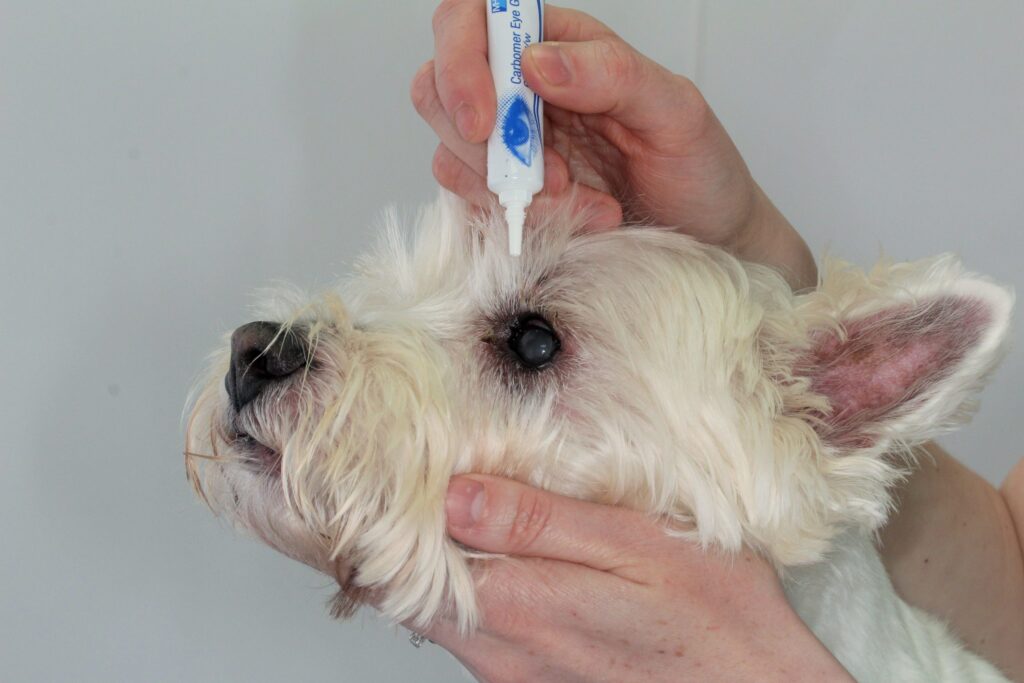Administering Eye Treatment
Before the administration of any eye treatment, wipe away any excessive discharge with warm water and a cotton wool pad, or similar.
Eye Ointment
Ointment can be applied directly onto the eyeball in the same way as for the eye drops, as described below.
Alternatively, you can gently pull the lower eyelid down and squeeze the ointment along the inside of the eyelid. Gently close the eyelids and massage to help to disperse the ointment.

Eye Drops
Only one drop is necessary, however if you do administer more by mistake it is not harmful. Please note, some drops should be shaken before use, and some need to be kept in the fridge. Please check the instructions of the drops for full information, and if you are in any doubt, please check with your Vet.
First, clean the eye(s) to remove excessive discharge. Administer the eye drop from behind so that your pet cannot see it coming.
Hold your left hand under your pet’s chin to raise his/her head upwards towards the ceiling. Holding the head upwards will make the eyes open naturally. Hold the eye drop bottle in your right hand and rest the outer edge of the palm on the top of the head, above the eye area; this hand can gently pull the upper eyelid away from the eye to make it easier to see the eye properly. The hand under the chin can pull the lower eyelid down gently although this is not usually necessary.
Apply one drop directly onto the eye.
Keep holding the head in the upward position for a few seconds to allow the eye drop to be absorbed. This technique means that your hands will move with your pet’s head if it moves!
How much should I apply?
In general, the exact amount of ointment applied does not matter. Aim to apply the size of a grain of rice!
Allowing for Intervals Between Different Treatments
Allow at least ten to fifteen minutes between different eye treatments. The exact order is not important and the treatments can be spread out during the day. Ointments last in the eye longer than drops so it is better to put drops in first if possible. It is not harmful to administer different eye treatments directly after one another, however it may decrease the effectiveness of the treatment.
Adverse Reactions to Eye Treatments
It is normal for your pet’s eye(s) to blink repeatedly after administering treatment. It is not normal for your pet to try and rub the eye(s), cry or hide after the treatment is given. If this happens often, please contact your ophthalmologist as the treatment may need to be changed. If you have any questions about your pet’s eye treatment, please do not hesitate to contact us for advice.
To save this page as a PDF, click the button and make sure “Save as PDF” is selected.
Ophthalmology
Find out more
To assist owners in understanding more about Ophthalmology we have put together a range of information sheets to talk you through the some of the more common conditions seen and treated by our Specialists.

